

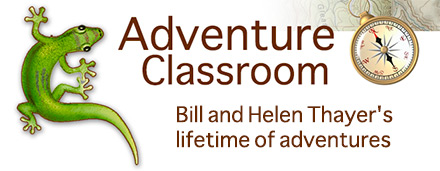
GROWING UP IN A GER
Boys and girls begin learning the traditional survival skills of the desert as soon as they can walk. They quickly become proficient horse, yak, and camel riders. The boys go on to compete in riding contests as teenagers and young men. Both boys and girls learn to ride horses at an early age so they can help their family with the chores. The boys ride their horses to herd the goats, sheep, cows and horses. The girls help their mothers milk the cows, mares, goats, yaks, and camels to make diary products. If they can ride a horse it's more fun and easier to do the chores.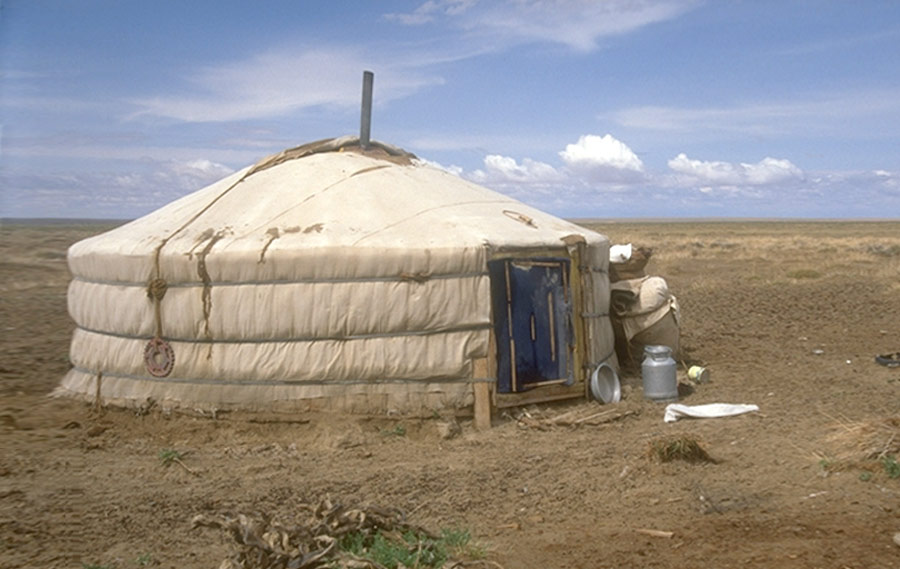
A normal day begins with the family rising shortly after daybreak, eating a meal of left over soup from the previous night or a traditional meal of boiled meat. This is an ever-present dish of the Mongolian nomads. The meat, usually mutton, is cut into handy chunks, and together with the bones, is boiled in salted water until tender. The meat is eaten with the fingers. The head of the family or the guest of honor gets the first and largest portion, and then the others may help themselves. Boiled, fatty meat is regarded as a meal that provides physical strength and is mandatory before departing on a journey or herding animals. The meal is accompanied by "suutei tsai" or salty tea. It consists of water, milk, and salt and is served in small bowls. This is the standard beverage that accompanies every meal.
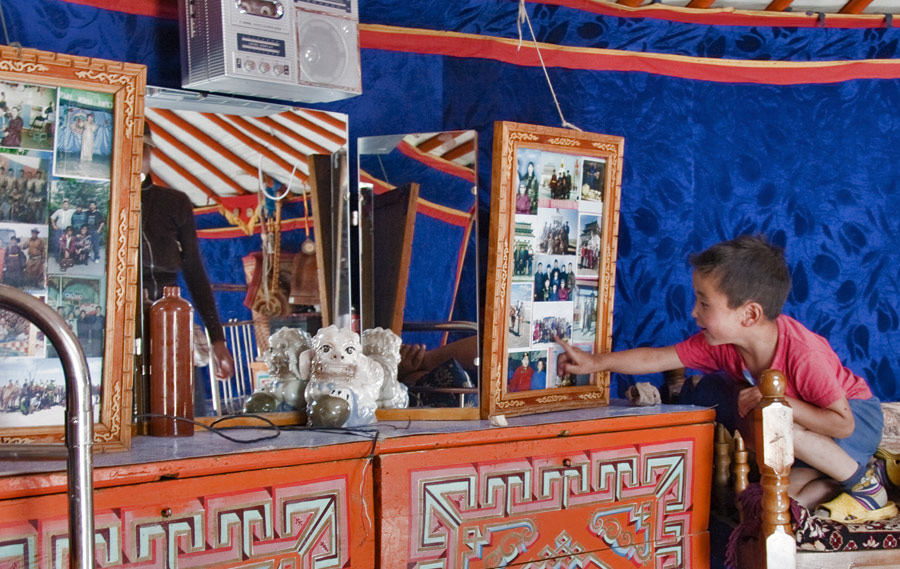
Traditionally, milking is the women’s responsibility. They milk the animals twich a day - morning and late afternoon. After breakfast, the women and girls milk the goats, camels, and horses. After morning milking is completed, it’s time for the girls and women to clean the ger, cook, sew and mend clothes. If they have extra time they spend it making spectacular embroidered coverings and decorations. As soon as the girls finish the morning milking, the boys mount their horses and herd the animals out to pasture. They stay with the animals all day watching over them, singing traditional songs, or even taking a nap while the animals graze. They take enough snack food such as "aruul" (hard milk curd) or strips of dried meat to last all day. In late afternoon the boys return the herds to the ger area and the girls begin the afternoon milking. After the girls finish the afternoon milking, dinner is cooked and served. After dinner it’s time to drink salty tea and a little vodka for the men while they talk and relax. Most families go to bed very late, long after dark. They use candles for light, or if they have a wind generator, they may have electric lights.
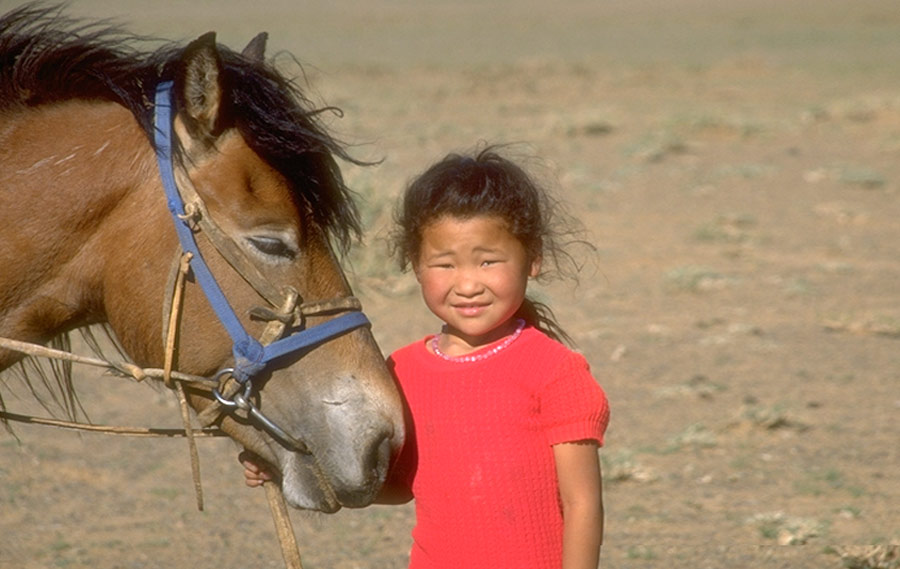
During the summer months, when the animals produce more milk, food is prepared for Mongolia’s long, harsh winters. The family must preserve and store sufficient food to survive, and most of that will be meat. Strips and chunks of meat are set out on the ger roof, or hung in strips inside the ger to dry. Traditional "white foods" are made from the milk of goats, yaks, and camels. Dried curd (aruul), cheese (byaslag), dried cheese (eezgii), butter or clotted milk (arum), yogurt (tarag) are eaten throughout the summer, and stored for the winter. The extremely dry climate of Mongolia is perfect for drying and storing foods. A traditional homemade drink is "airag" - made from horse milk. A large leather sack hangs inside the ger entrance and is filled with mare's milk. Now and then the girls stir the liquid with a wooden paddle to introduce oxygen which encourages fermentation. After a few days the liquid becomes airag, develops a fairly sour taste and turns alcoholic. The adults like it too.
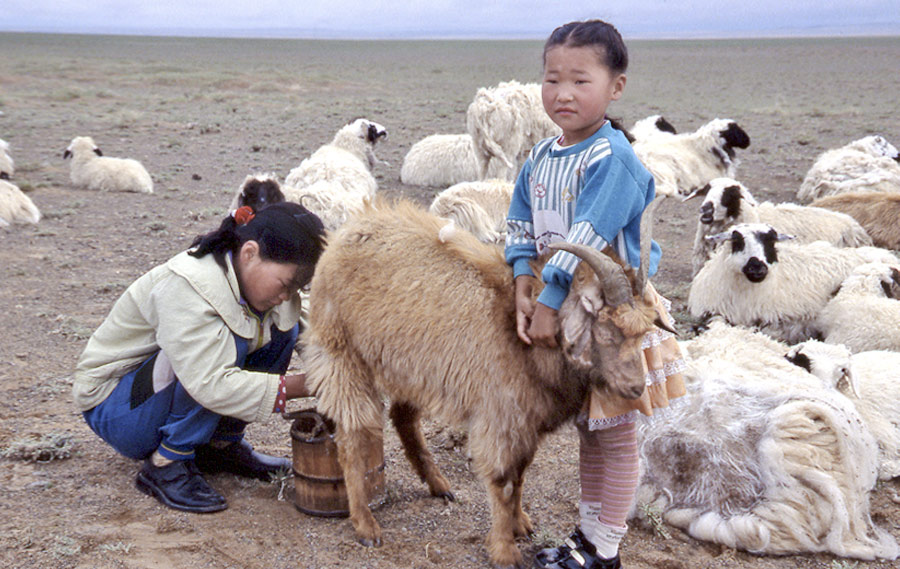
When they have extra time, the boys and girls both gather fuel - saxual twigs or dried dung - for the stove. A supply of extra fuel is stored for the winter, for when the frozen ground will be covered with snow. When guests arrive the girls, with their mother, become the perfect hostesses as they offer tea, meat and other delicacies. The men are always served first. Some families allow children to attend boarding school during the winter months at the nearest provincial (aimag) center which is often days away. In the spring they return home to help with herding and summer responsibilities and family preparations for the next winter.
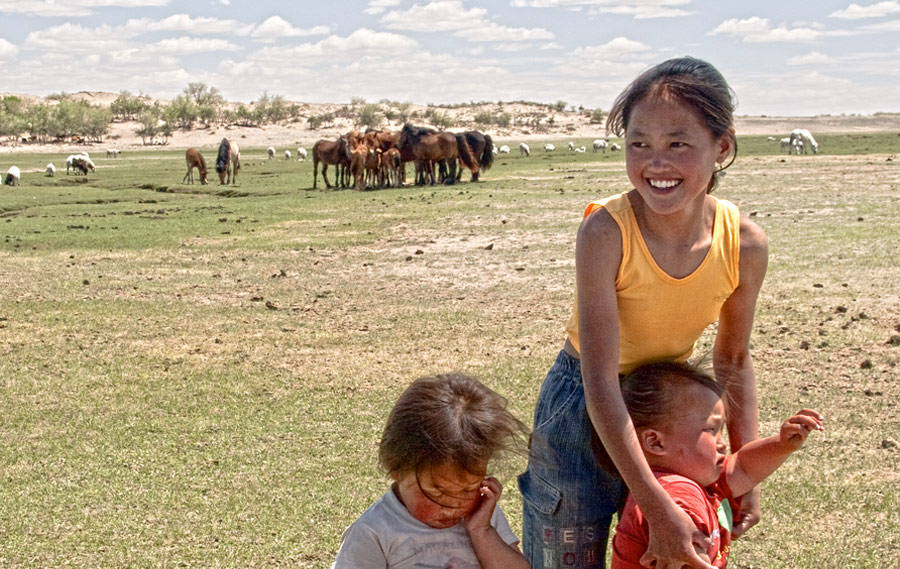
A desert nomad family may move their ger several times a summer. The ger is collapsed and packed onto carts pulled by horses, camels or yaks. The dwelling along with other family possessions must be compact and light. After arriving at the new location the ger is set up in about three hours and day-to-day life resumes. The boys and girls mount their horses and help herd the animals to fresh pasture and water. After autumn’s first snowfall, the family returns to a more sheltered wintering base, usually to the same place year after year. Here they remain all winter with their animals living close to the ger.
Although they don’t always have the advantage of attending school, their survival and herding skills and their understanding and connection to their environment are unsurpassed. They learn to assist their parents every day, contributing their time and energy to all the tasks necessary to insure the survival of their family. While growing up, boys may spend time wrestling with one another, especially in the countryside. They may also practice archery. At the national sport festival - the Naadam Festival - the three main events are horse racing, wrestling and archery. Both boys and girls between 5-13 years of age compete with their race horses at the festival. They take months to prepare for the race, by practising and feeding the horses a special diet.
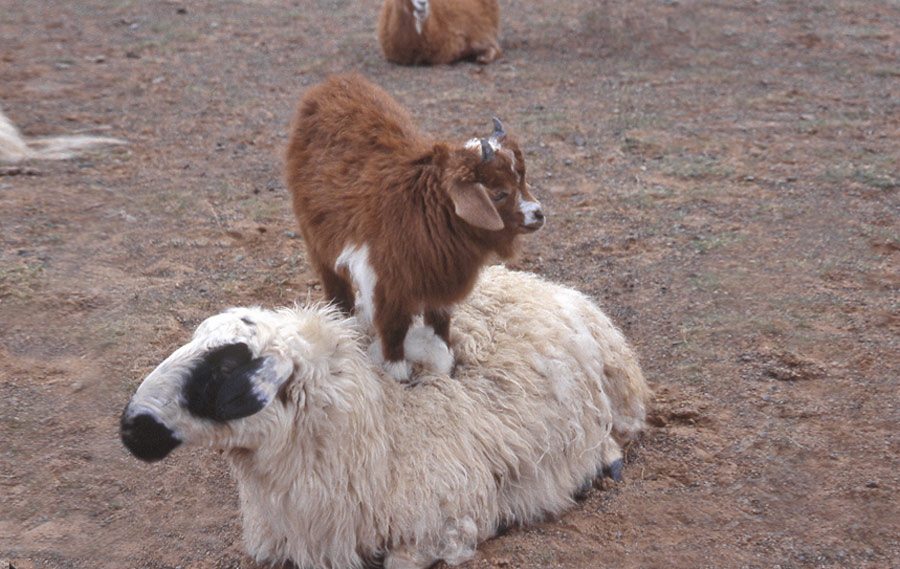
Since their early childhood, Mongolian children are taught how to show respect to their parents, other people, their possessions and to nature. Here are some things which children are taught at an early age.
- Don't lean against a support column of a ger. Because it may cause bad luck.
- Don't whistle inside a ger because it may cause nature disaster, such as heavy rain and strond wind.
- Don't put any trash or even water in the fire because fire is sacred.
- Don't walk in front of older people.
- Don't take food from another person's plate with your left hand - always use your right hand.
- Don't touch other people's hats.
- Don't spill any milk, because milk and milk products are considered holy.
- Always receive things such as gifts and food with both hands.
- Always immediately shake a person's hand if you accidently step on someone's foot, so they know you did not mean it.
- Always step carefully over the ger door threshold.
- Always enter the ger without knocking on the door, it is impolite to knock.
Back to [Kid2Kid Index]
